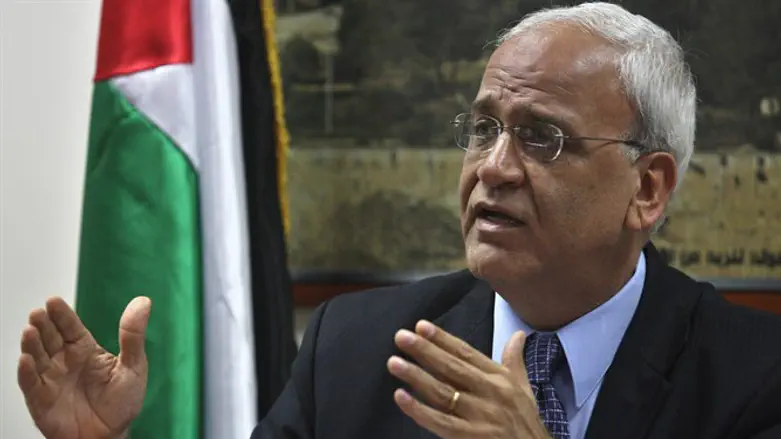
Senior Palestine Liberation Organization (PLO) official Saeb Erekat on Sunday blasted Israel’s decision to build a new Jewish neighborhood in the historic Jewish marketplace in Hevron.
In a statement posted to Twitter, Erekat blamed the recent US policy shift vis-à-vis the Jewish communities in Judea and Samaria.
"Israel's decision to build a new illegal settlement in occupied Hebron is the first tangible result of the U.S. decision to legitimize colonization; this cannot be taken out of the context annexation," he wrote.
"Concrete measures, including sanctions against settlements, are an international responsibility," added Erekat.
His comments came after Defense Minister Naftali Bennett ordered the Coordinator of Government Activities in the Territories and the Civil Administration of Judea and Samaria to notify the Hevron municipality of the planning a new Jewish neighborhood in the historic Jewish marketplace.
The decision is expected to end years of legal and political battles over the fate of the marketplace, which has sat abandoned for decades even after Jews began to return to Hevron following the 1967 Six Day War.
The new neighborhood will create a territorial continuum from the Cave of the Patriarchs to the Avraham Avinu neighborhood and double the number of Jewish residents in the city.
Erekat’s comment was referring to the recent announcement by US Secretary of State Mike Pompeo that Washington no longer considers Israeli communities in Judea and Samaria to be a violation of international law.
The Palestinian Authority (PA) was outraged following Pompeo's statement. Nabil Abu Rudeineh, the official spokesman for PA chairman Mahmoud Abbas, said the declaration “is null and void, condemned and totally contradicts with international law, resolutions of the international legitimacy that reject settlements, and Security Council resolutions, especially resolution 2334.”
Arab League foreign ministers also denounced Pompeo’s announcement, with the body’s Secretary General Ahmed Aboul Gheit calling the decision “unfairly biased and unacceptable.”
